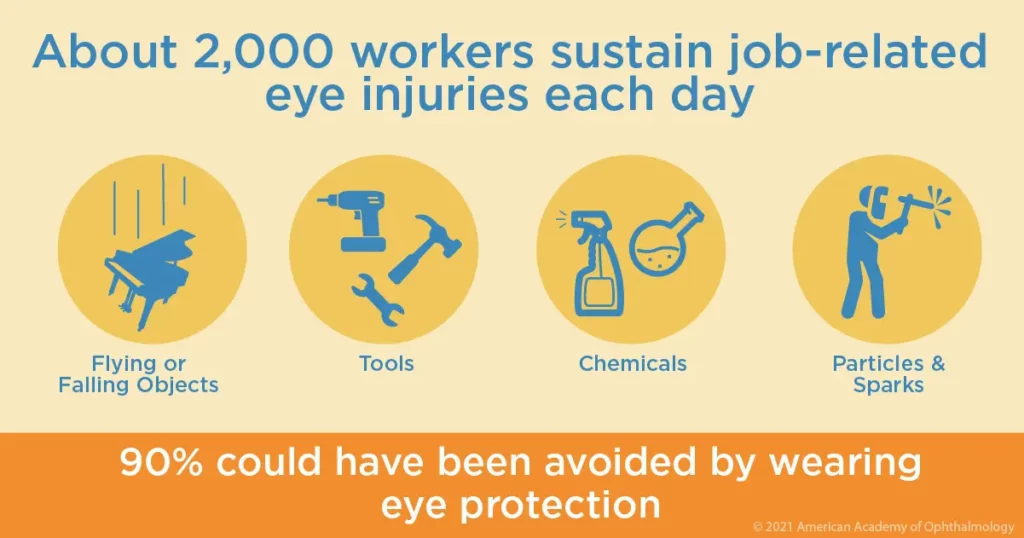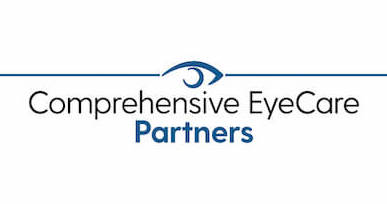In This Issue: March 2024
- Are You Lucky or Unlucky with Eyesight?
- Vitamin A and Vision
- March is Workplace Eye Wellness Month
- Take Control with Cataract Surgery

Are You Lucky or Unlucky with Eyesight?
Sometimes, no matter how healthy you are, you can develop eye diseases due to genetics. You could be at greater risk of developing diseases such as glaucoma, cataracts and macular degeneration if you have a family history of these diseases. Scientists have also identified specific genetic markers that can determine conditions such as nearsightedness and farsightedness.
Before you blame your family for your vision challenges, remember that your lifestyle habits and environmental factors also play a big role in your eye health. For example, people who smoke are 2-3 times more likely to develop cataracts – and up to 4 times more likely to develop age-related macular degeneration – than those who don’t smoke. If you aren’t wearing 100% UV protection sunglasses when outdoors, you are increasing your risk of cataracts and other eye diseases. And overexposure to digital devices, and reduced time outdoors, may increase your likelihood of developing nearsightedness (myopia).
The bottom line: Know your family history of eye disease, have regular eye exams so conditions can be diagnosed/treated early and live a healthy lifestyle to protect your eyes. Contact us at (702) 996-5159 or click below to schedule an eye exam.

Vitamin A and Vision
Eggs…leafy greens…orange vegetables…
Foods like eggs, spinach and carrots contain vitamin A, an essential vitamin that promotes retina health and nourishes your cornea and other parts of your eyes. If your diet is deficient in these types of foods, consider making a conscious effort to include them in your meal plans or take vitamin A supplements (check with your doctor first). By having the right amount of vitamin A in your diet, you may be able to protect your eye health and improve night vision or even night blindness.

March is Workplace Eye Wellness Month
Most people are aware that it’s important to wear safety glasses when doing work like construction, mining or welding. The risk of eye injury due to airborne particles or sharp objects is high in these work environments.
But these aren’t the only types of professions that could be harmful to your eyes. In honor of Workplace Eye Wellness Month, we are highlighting some of the potential eye injury hazards in different types of professions.
Professions and Potential Eye Injuries
- Landscaping: flying objects (rocks, dirt, etc.), fertilizers, lime dust and other chemicals during mowing, trimming
- Kitchen workers: grease/oil splatters, steam burns, cleaning chemical splatters and oven heat during food prep, oven and stove cooking and cleaning
- Medical lab workers: chemical burns, aerosols, blood splatters
- Office workers: digital eye strain from overexposure to blue light and potential to develop more serious eye diseases in the future such as cataracts, macular degeneration, retina damage
- Lifeguards: overexposure to harmful ultraviolet rays that can lead to cataracts, macular degeneration, corneal damage
- Mechanics: sparks and airborne metal from bench grinders, oil splatters
According to the National Institute for Occupational Safety and Health, 2,000 workers in the United States suffer an eye injury at work every day – leading to one or more days out of work. Temporary or permanent vision loss occurs in 10-20% of these cases. Knowledge is power when it comes to protecting your eyesight! It is widely reported that 90% of these injuries could be avoided if workers wore eye protection certified by the American National Standards Institute (safety goggles/glasses, blue light glasses, face shields, welding helmets, etc.).
If you are unsure what type of eye protection you need, talk to your employer or contact us to schedule an eye exam with our team so we can help you identify the best option for your line of work.

Take Control with Cataract Surgery
If you’ve been living with cataracts, know this: You have the power to restore clear vision to your life. When you visit us at Shepherd Eye Center for a cataract evaluation this month, we’ll give you the power to choose how you want to see after surgery.
During the evaluation, we’ll help you understand what’s going on with your vision and we’ll let you know if we recommend surgery now. You’ll leave the appointment knowing how cataract surgery works, what the procedure feels like, how long recovery is and what vision results we expect for you. The lens option you choose will play a big role in your vision after surgery. We’ll tell you everything you need to know. Take control! Contact us at (702) 996-5159 today.


